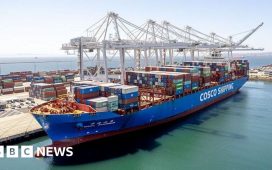Nils Pratley’s article on the water industry in England and Wales provided a succinct summary of the sector’s history, and how it was brought down by investor greed and weak regulation (Cheap sales, debt and foreign takeovers: how privatisation changed the water industry, 10 July).
The privatisation story, however, has two halves. The first was one of increased investment (after years of inadequate public funding), with improved operational and capital efficiency. Purposeful design headed off asset-stripping, while excessively entrepreneurial activities were constrained. The second half saw regulatory relaxation, weakened environmental enforcement, and infrastructure funds seeking better returns. Investors know that high returns can’t be sustainably delivered by low-risk businesses, but it didn’t stop new owners and lenders stepping in, leading to overborrowing.
This is the heart of the issue, and a more proactive regulator might have headed this off – given that “whole company securitisation” was part of the private equity playbook by that time. Fortunately, Thames Water has plenty of funding to cover ongoing operating costs – but it may not be able to service its debt.
This must be restructured to an affordable level, and financiers will have to bear the cost of their own greed or incompetence. Thereafter the company will be highly investable. Such a restructuring might best be negotiated without the need for receivership, nationalisation or special administration. Politically savvy financiers might welcome this.
Yes, excess dividends may have been taken, but those are now gone – unless the companies acted illegally. However, like the billions lost to Covid misspending, HS2 and other government mistakes, we have to accept them – the difference being that these losses are recovered through highly visible water bills rather than opaquely through our taxes.
Bill Kingdom
Oxford
As a former regulator – in water, rail and the ill-fated London Underground public-private partnership (PPP) – I understood that the first rule of regulation should be that customers should only pay once. But this still raises the question of the nature of the “regulatory contract”. In the PPP, it was decided (rightly or wrongly) that the infrastructure companies should be paid the efficient cost of delivering outputs, even if these costs were initially underestimated. For most regulated industries, including water, the contract is essentially a fixed-price one, subject to adjustment only for specified items such as changes in legal obligations.
Companies can challenge the proposed contract by appealing to the Competition and Markets Authority. If they do not appeal, then they are accepting the contract and have to deliver the regulated outputs, whatever the cost. Failure to deliver in one five-year period does not mean that the previous contract can be renegotiated. Indeed, serious failings should lead to additional penalties.
So Feargal Sharkey is right to challenge Ofwat’s draft decisions (Ofwat accused of showing ‘contempt’ to customers over water bill price rises, 11 July) if the regulator has effectively reopened the previous contract. That is an empirical question that careful examination of the draft determinations (and final determinations of the previous review) can answer.
Chris Bolt
Stratford-upon-Avon, Warwickshire










